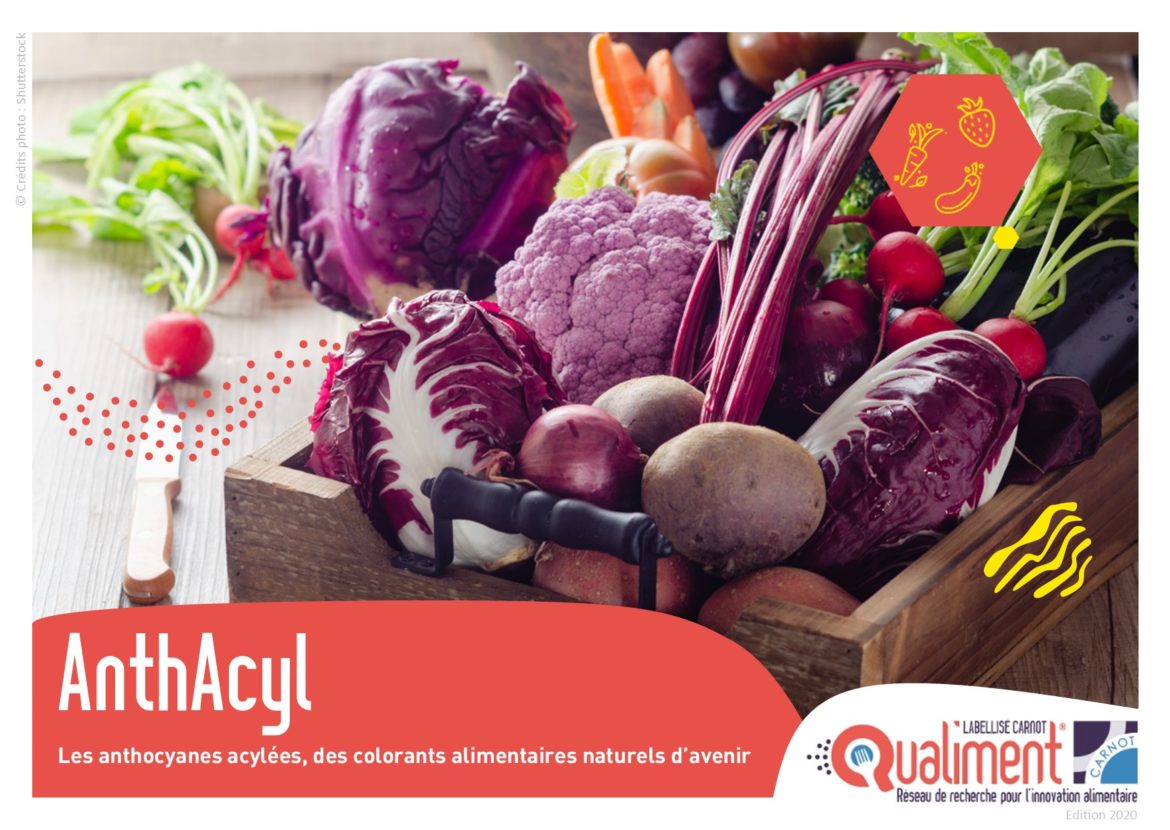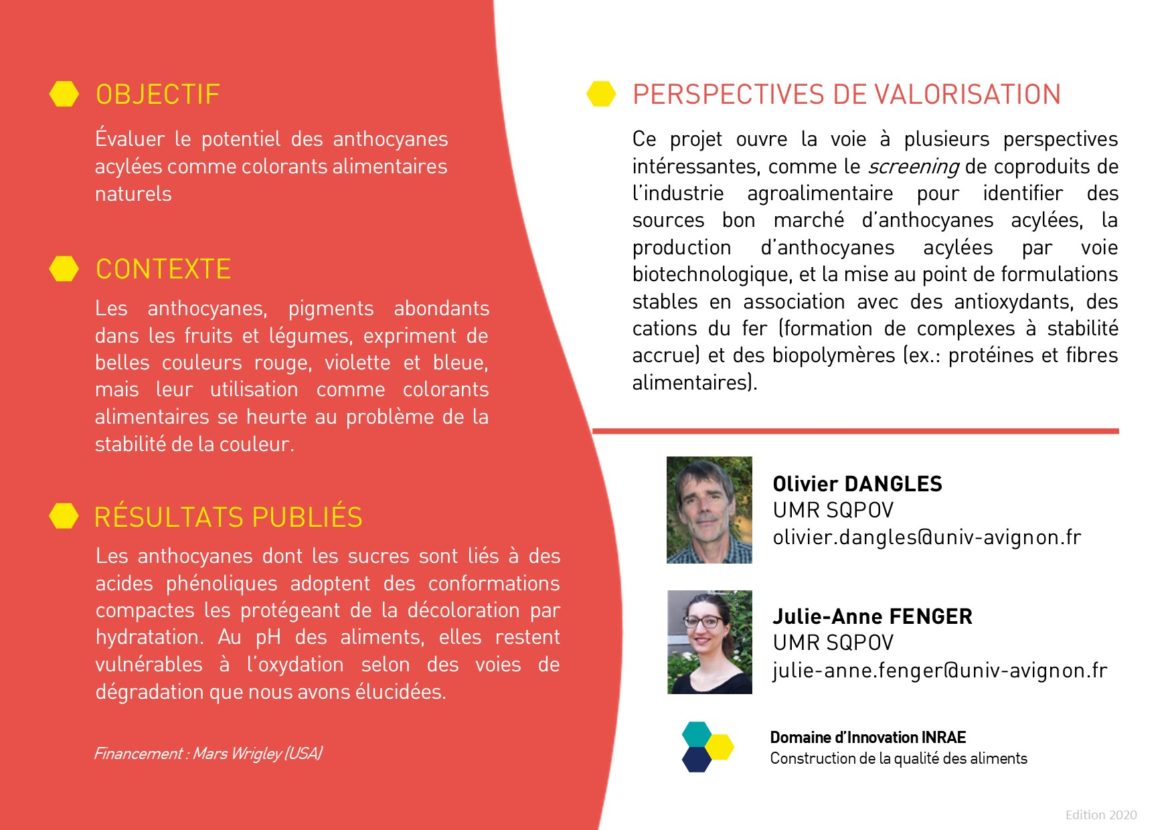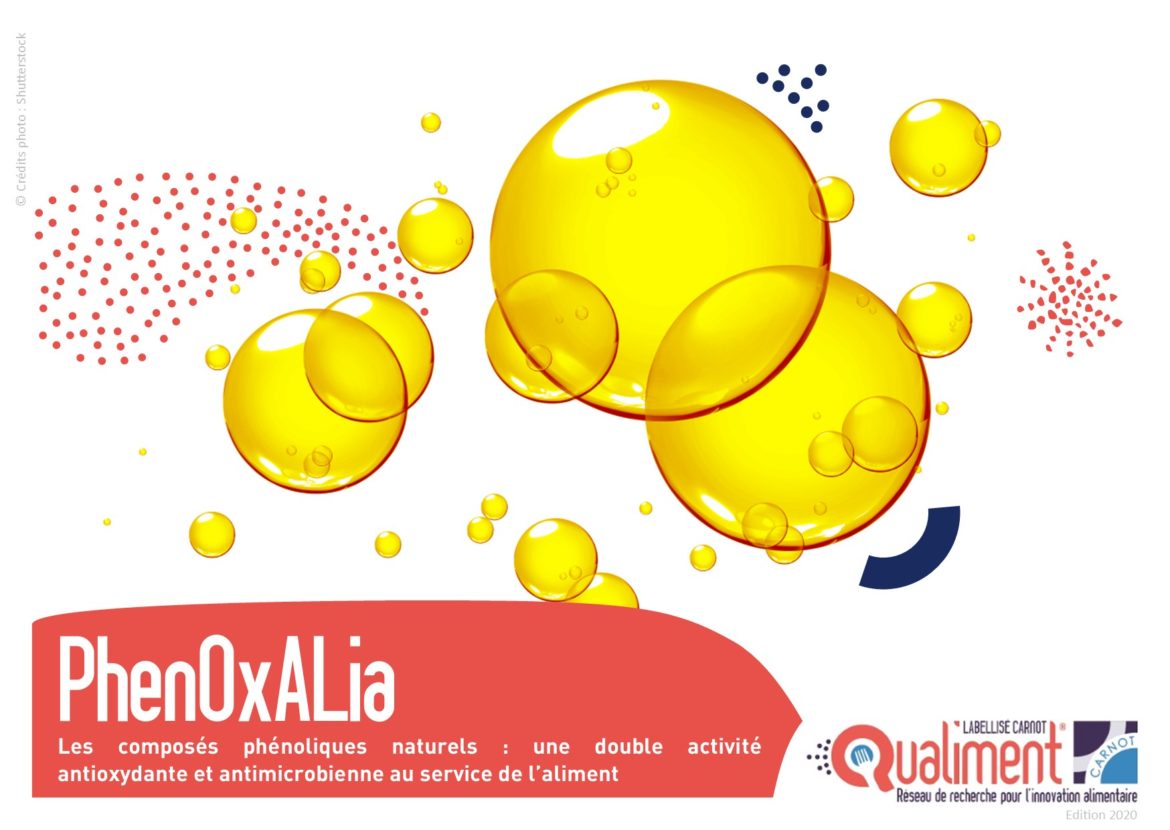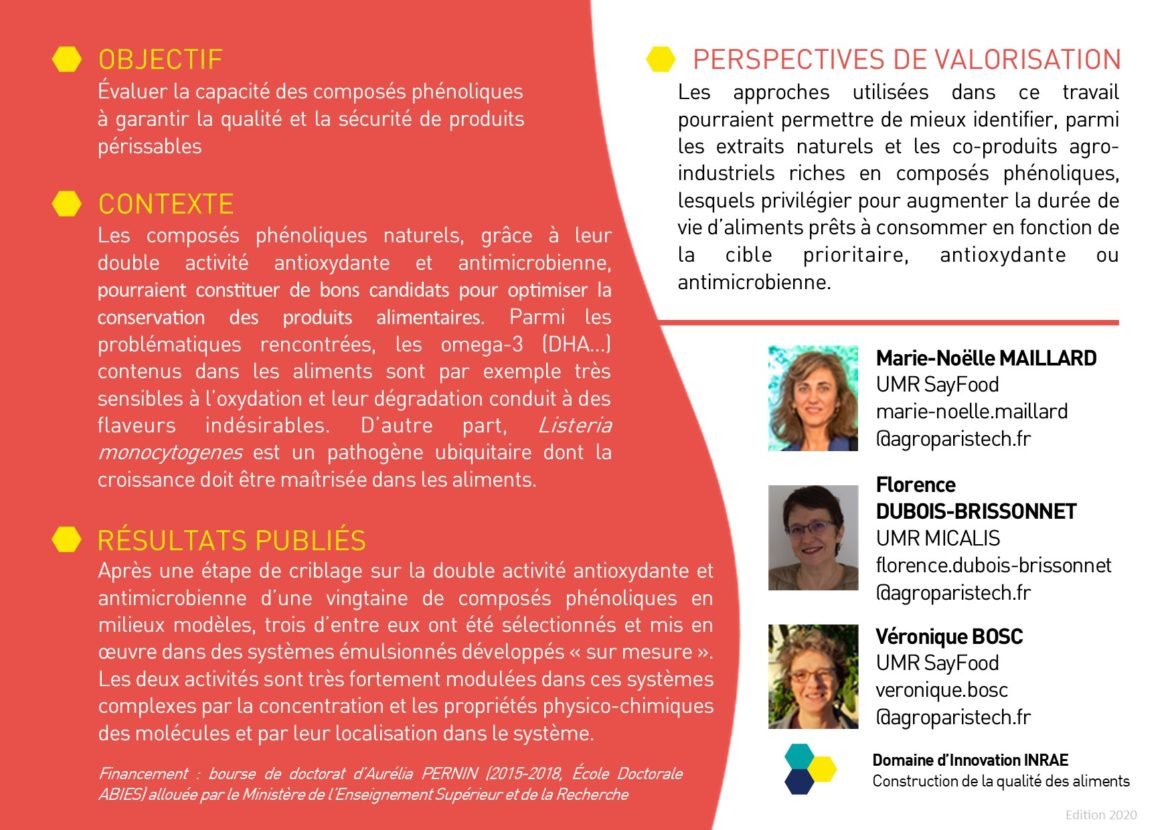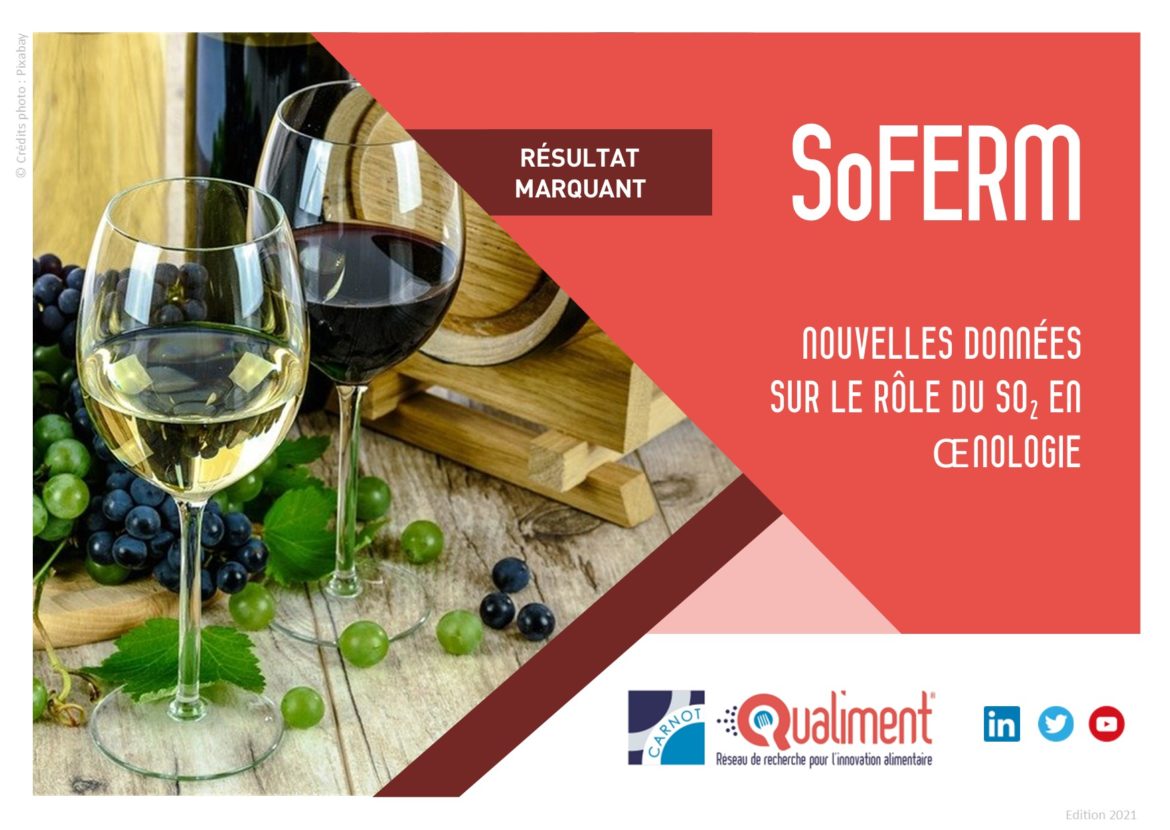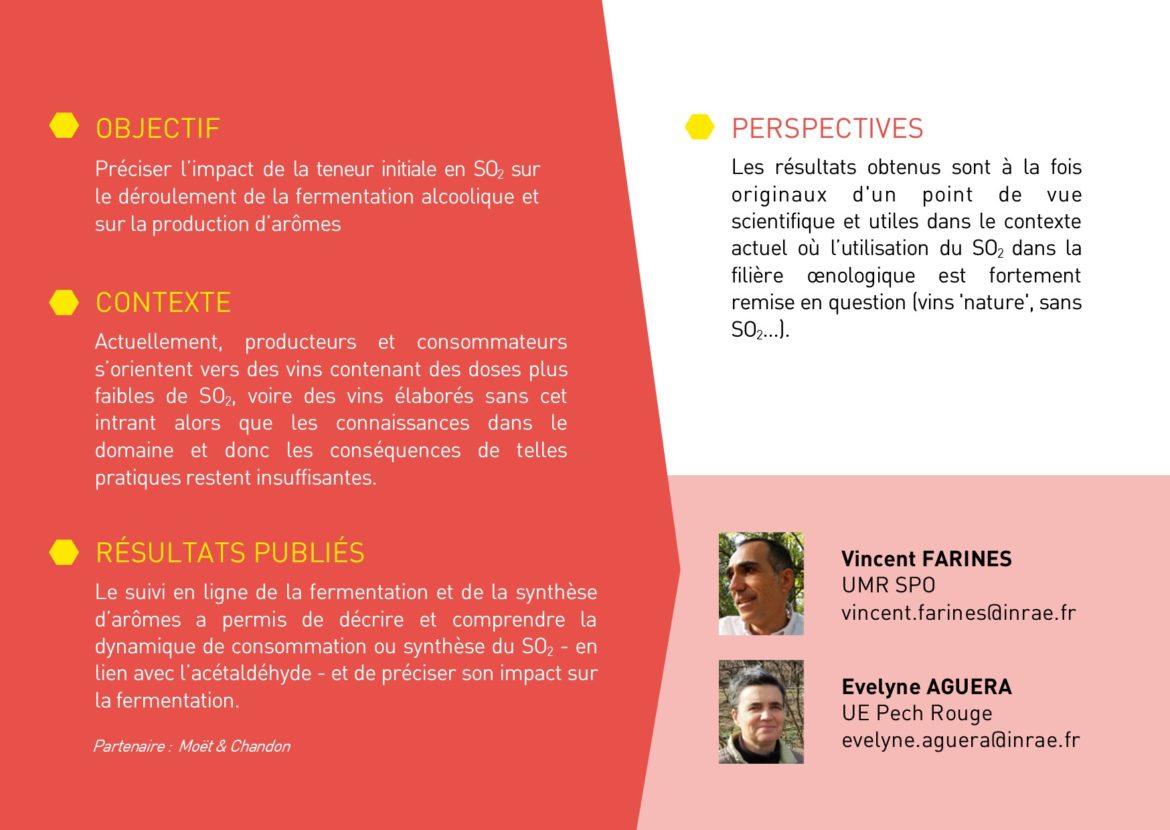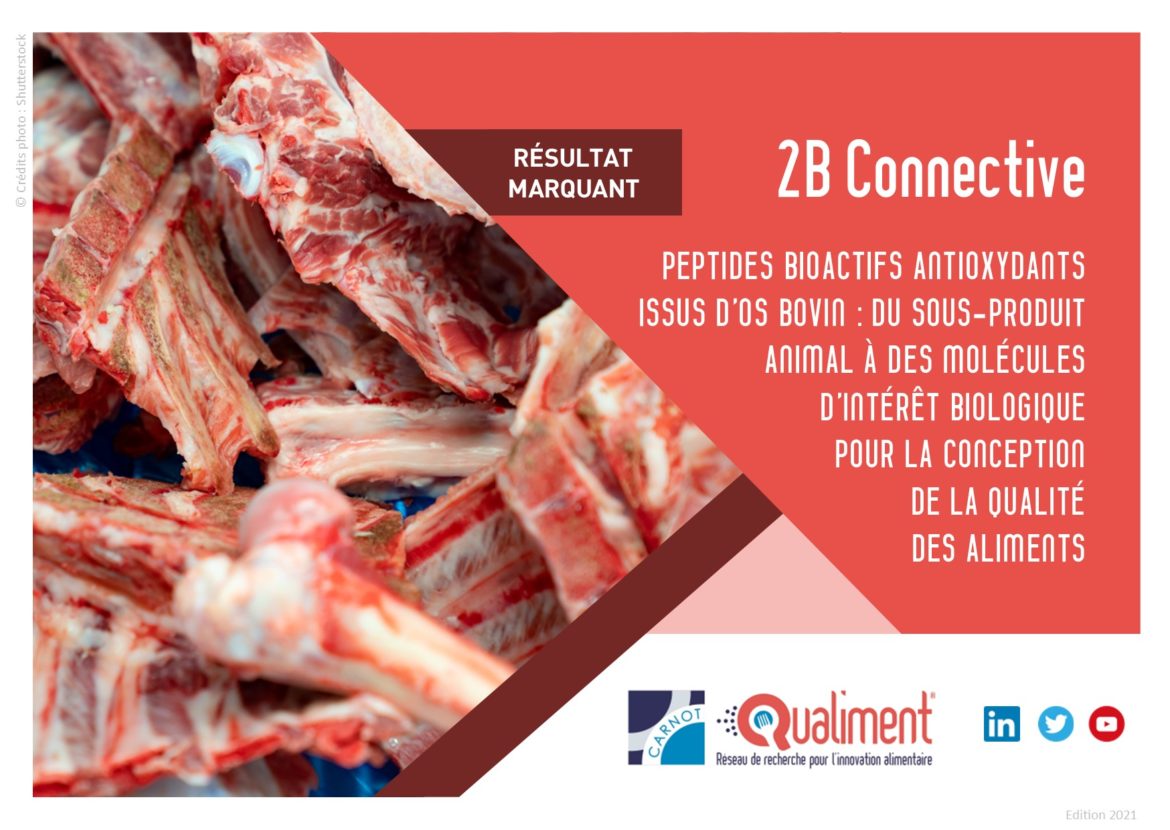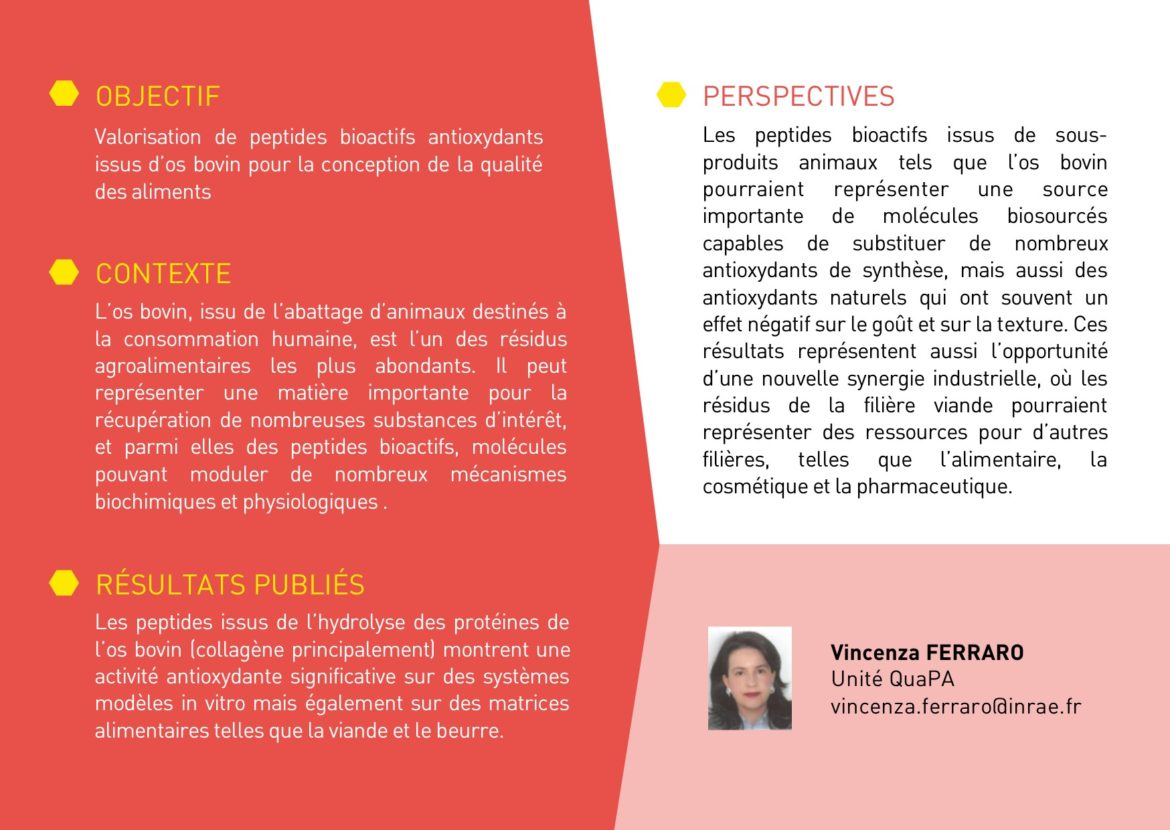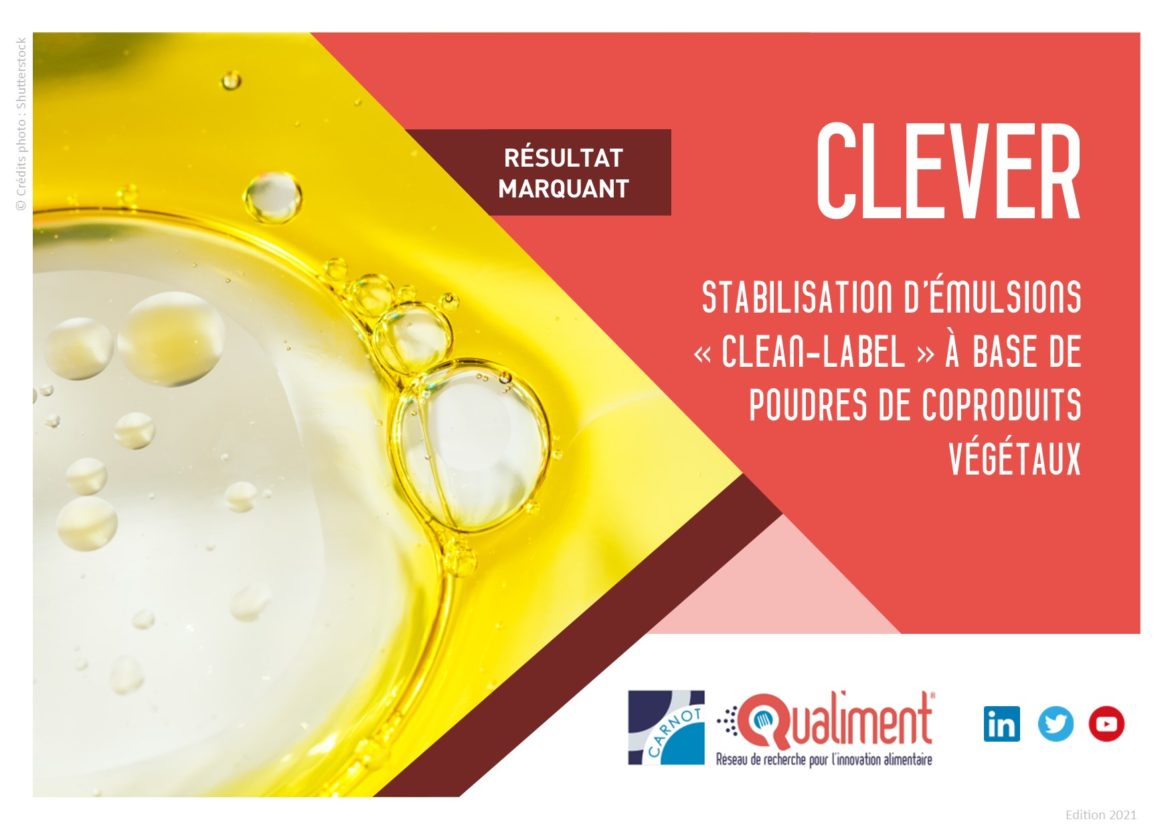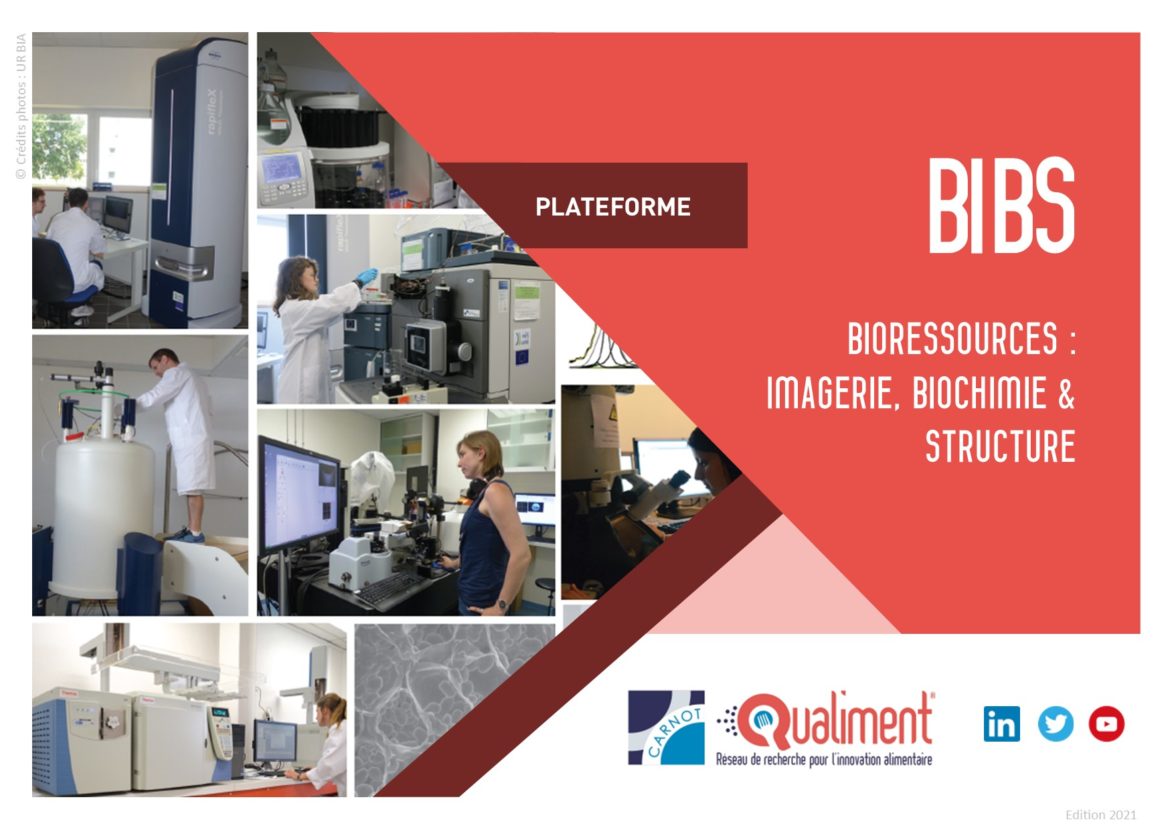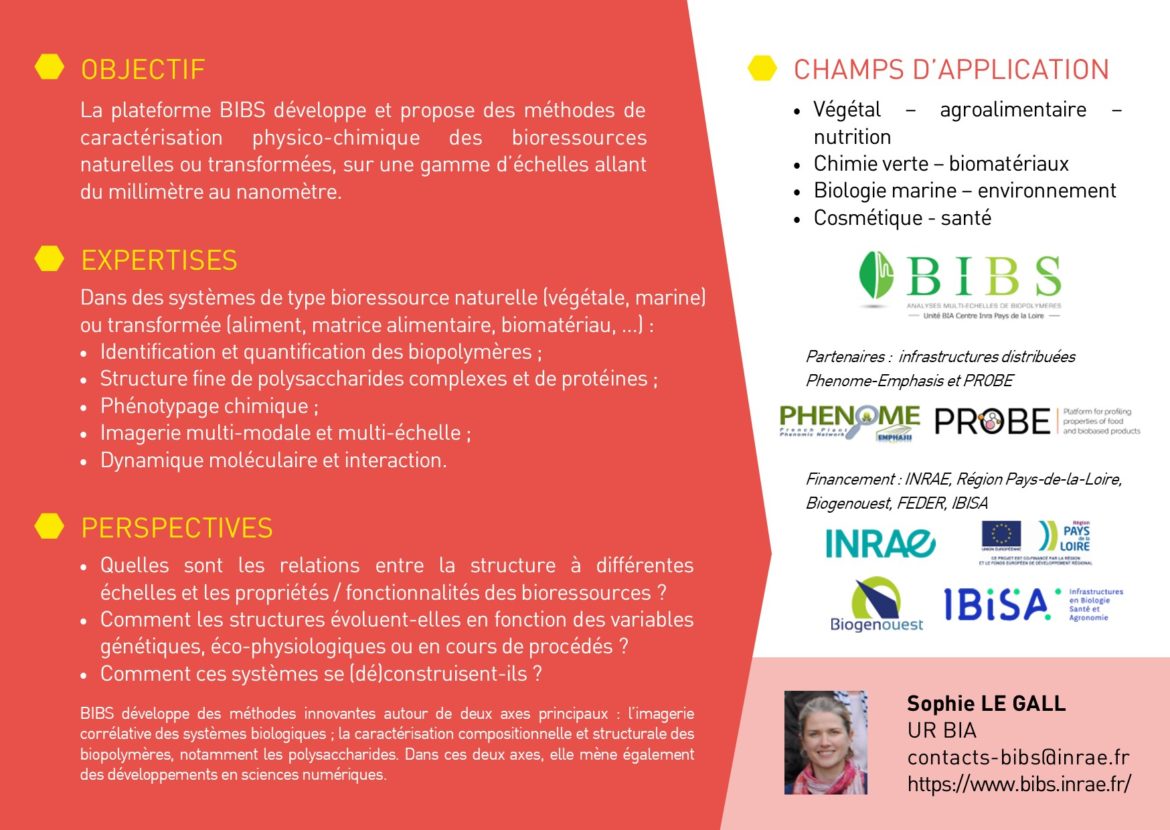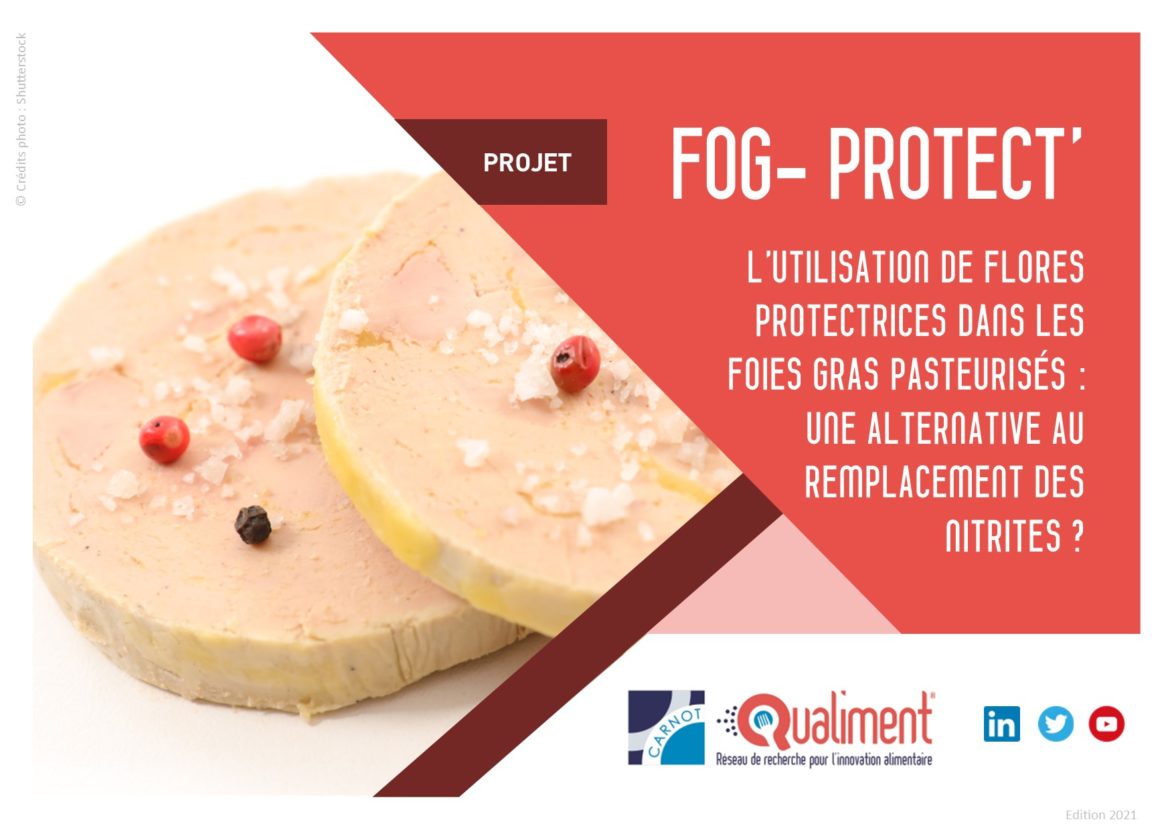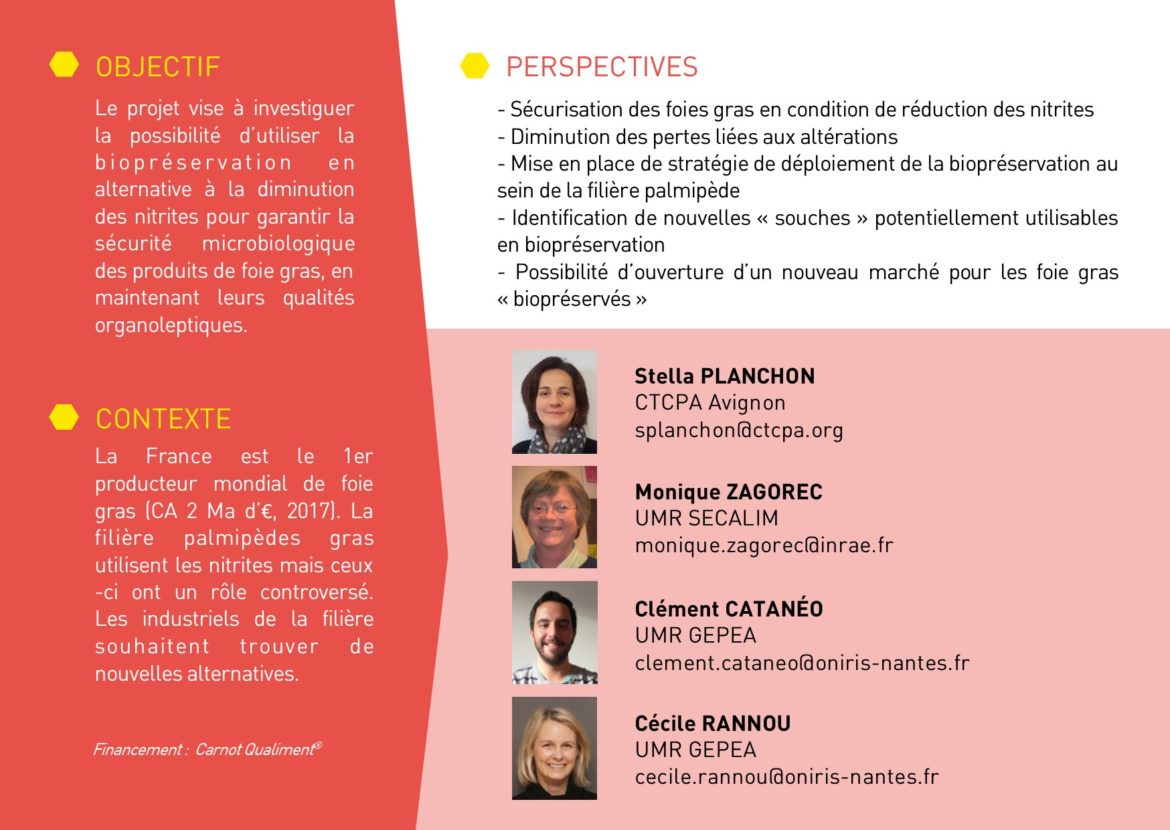Naturalness trend
 Context and challenges for business innovation
Context and challenges for business innovation
Naturalness appears to be a clear demand of consumers in their daily diet, generally motivated by health reasons and environmental sensitivity. It translates in particular into a rejection of certain chemical or enzymatic processes or additives.
As a result, naturalness is increasingly becoming an essential determinant of any development for food manufacturers, with impacts on the formulation of existing products and on the development of new products. The entire value chain is impacted by -this trend, which is reflected in the production and preservation processes, the search for raw materials, and the formulation of final products.
 Carnot's contributions to accompany them in their evolution
Carnot's contributions to accompany them in their evolution
Qualiment® laboratories support food companies in the development of more natural products by combining approaches based on formulation, new processes and knowledge of consumer behavior.
In particular, they have the expertise to propose different physical or microbiological processes, although they themselves are sometimes subject to some reluctance from the general public. Another way is to make better use of the functionalities present in food raw materials. Each new solution must be confronted with the issues of quality, which are crucial for long-term acceptance, and sustainability, taking into account the entire chain from production to consumption.
Areas of expertise

Background to date
The strong increase of metabolic and cardiovascular diseases encourages the limitation of salt, sugar and fat consumption. In addition, the consumer expectation for natural and healthy products participates in the development of "free" products: additive-free, allergen-free, gluten-free, etc.
Challenges for business innovation
These ingredients, which play a central role in the taste, structure and preservation of food, are not easy to replace. Therefore, manufacturers are faced with the challenge of finding strategies using alternative ingredients, which are natural and recognizable while preserving the sensory quality of food.
Carnot's contributions to accompany them in their evolution
Qualiment® teams have complementary skills, databases and decision support tools to help manufacturers develop innovative products that are nutritionally sound and acceptable to consumers.

Background to date
Consumers are looking for processes that allow better preservation of the sensory and nutritional qualities of food, without compromising on microbiological or chemical risk. The demand for "clean-label" and additive-free products is also leading to a re-examination of the possibilities in terms of sources of colorants or texturizers, with the search for new formulations or alternatives through processes.
Challenges for business innovation
This consumer demand requires the evolution of many recipes and is an important determinant for the acceptability of new products and solutions.
Carnot's contributions to accompany them in their evolution
Carnot Qualiment® has the means to implement on a pilot scale processes to ensure the stability of fresher foods, with a decrease in the intensity of thermal treatments, such as high hydrostatic pressure or volumetric heating (ohmic heating, microwave or radio frequency heating). Other uses of these processes can also be implemented for the decontamination of installations or packaging, such as pulsed light, ultrasound, ozone, etc.
On the other hand, the Carnot Qualiment® teams are able to propose new processes for food texturing, based on an expert knowledge of their physico-chemistry: extrusion, high dynamic pressure, ultrasound, kneading control, etc.
Vegetable alternatives to animal products can be developed either by using new texturizing processes, or by identifying microbial consortia adapted for legume or seed fermentations allowing to eliminate false tastes or to generate new flavors.
Finally, the intensification of extraction and purification processes of vegetable molecules allow to offer new solutions for obtaining natural coloring or aromatic solutions.

Background to date
A growing number of consumers tend to reject products incorporating artificial chemical ingredients, in favor of products that appear more authentic and "natural". This quest for transparency, quality and naturalness stems in particular from consumers' concerns about the possible consequences of additives or other chemical substances on their health, as well as from a growing ecological awareness of the processes used in the food industry.
Challenges for business innovation
In order to reassure consumers, the emergence of new natural ingredients to replace synthetic ingredients by providing at least equivalent properties to products seems inevitable. Current advances, particularly in microorganisms, could also be major levers in the development of new natural ingredients.
Carnot's contributions to accompany them in their evolution
The Carnot Qualiment® has a recognized expertise in the extraction and the study of the stability of natural coloring molecules such as polyphenols (anthocyanins and their derivatives) or carotenoids, whether they are of plant, algal or microorganism origin.
Qualiment® teams are also able to study new solutions for food texturization, whether from proteins (dairy proteins, plant proteins or mixtures of plant and animal proteins), or from dietary fibers.
Finally, the expertise and the microorganism collections of Qualiment® members allow to identify microorganisms able to generate in situ during fermentation new flavors or new textures.

Background to date
In response to a growing consumer demand for minimally processed products, biopreservation is emerging as a preservation method of choice. By using bacteria or their metabolites, it allows to improve the shelf life of food by maintaining a high quality and a hygienic status associated with it while limiting nutritional and organoleptic losses. Microorganisms are also at the basis of the implementation of fermentations, allowing to obtain specific sensory properties.
Challenges for business innovation
Microorganisms open up a vast field of solutions for consumers in search of naturalness, particularly through biopreservation and fermentation applications. They therefore appear very promising for the food industry.
Carnot's contributions to accompany them in their evolution
The expertise and microorganism collections of Qualiment® members allow the design and validation of strains or consortia of strains, used for food biopreservation purposes, especially for meat products, or for the implementation of adapted fermentations. The latter are based on lactic acid bacteria and probiotics, to ensure both preservation and the achievement of specific sensory qualities, and this for plant-based foods as well as for dairy products.

Background to date
The increasing search for naturalness on the part of consumers implies the development of new products, favouring natural ingredients and simpler and more transparent formulations for consumers. In addition to the issues related to the development of these products, their marketing also raises questions about their perception by consumers.
Challenges for business innovation
Faced with consumers who question and may show signs of mistrust in the food industry, it is increasingly relevant to associate the analysis of consumer perception with product development. Indeed, quality factors as perceived by consumers condition the market acceptance of new products, despite their intrinsic quality.
Carnot's contributions to accompany them in their evolution
Qualiment® members can accompany innovation processes until consumers take into account extrinsic quality factors, for example how foods formulated in a more "natural" way are perceived by consumers.

